IT’S the season of the Filipino lolas.
Disney UK recently released its Christmas video featuring a grandmother (lola) and the Filipino parol, tugging the hearts of Filipinos in the diaspora. Then a couple of weeks ago, “Blue’s Clues & You!” introduced Josh’s lola, along with yet another Filipino classic, the bibingka.
But before these grandmas even made it into everyone’s consciousness, another Filipina lola already became viral somehow, thanks to her granddaughter Kimberly Camara who named her online bakery in her honor and memory.
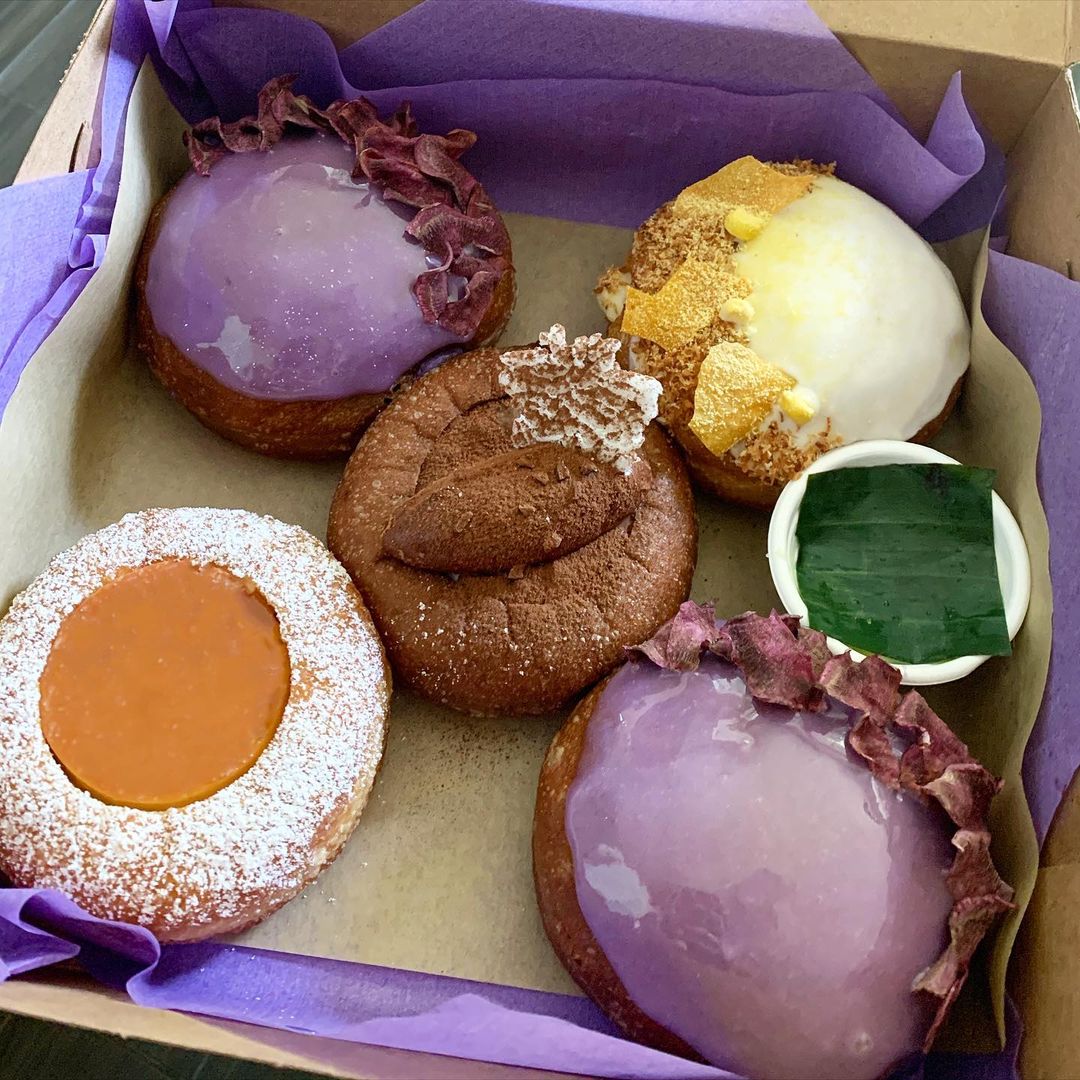
Camara is the brains behind Kora, the NYC bakery now famous for its doughnuts infused with Filipino flavors and a long waitlist. They staged their first-ever popup in October and to say that the event was a smashing success would be a massive understatement.
“I draw my inspiration from my culinary background and also my Filipino heritage,” Camara told the Asian Journal. “It’s a combination of a lot of different influences in my life, one of the biggest one is my grandma, Lola Cora.”
Week after week, the anticipation built up as the demand for Camara’s Filipino doughnuts rose. We asked around while waiting in line and most were curious because they all failed in getting their orders on the day of the release as everything was sold out after just a minute or two. Others were repeat customers who wanted to have more.
Camara makes the doughnuts from her apartment in Woodside, Queens, around six blocks away from the popup venue at Fabula Cafe on 61st Street.
On their way to the cafe, she surveyed the line and was immediately overwhelmed.
“I did not expect five blocks of lines, maybe 100, 150 people at most. I was absolutely dumbfounded when I saw the line outside wrapping around so many blocks,” the NYC-born chef said. “For me mostly it was the feeling of anxiety knowing that more than half of those people are not going to be able to get anything.”
Not bad for something that was started in the middle of the lockdown due to the global pandemic.
Last June, Camara posted an update on her Instagram account, apologizing to friends, family and followers for being MIA (missing in action) for a while and revealed that she was working on a “little project.”
“Prior to the lockdown, I was working full-time and I was in the process of developing multi-coursed, private Filipino dinners to be held from my apartment,” she shared. “Of course, as the world still remains upended, these dinners may not be possible for some time, so I wanted to come up with a way to keep creating and introduce you all to some of those Filipino flavors.”
Kora was that “little project.”
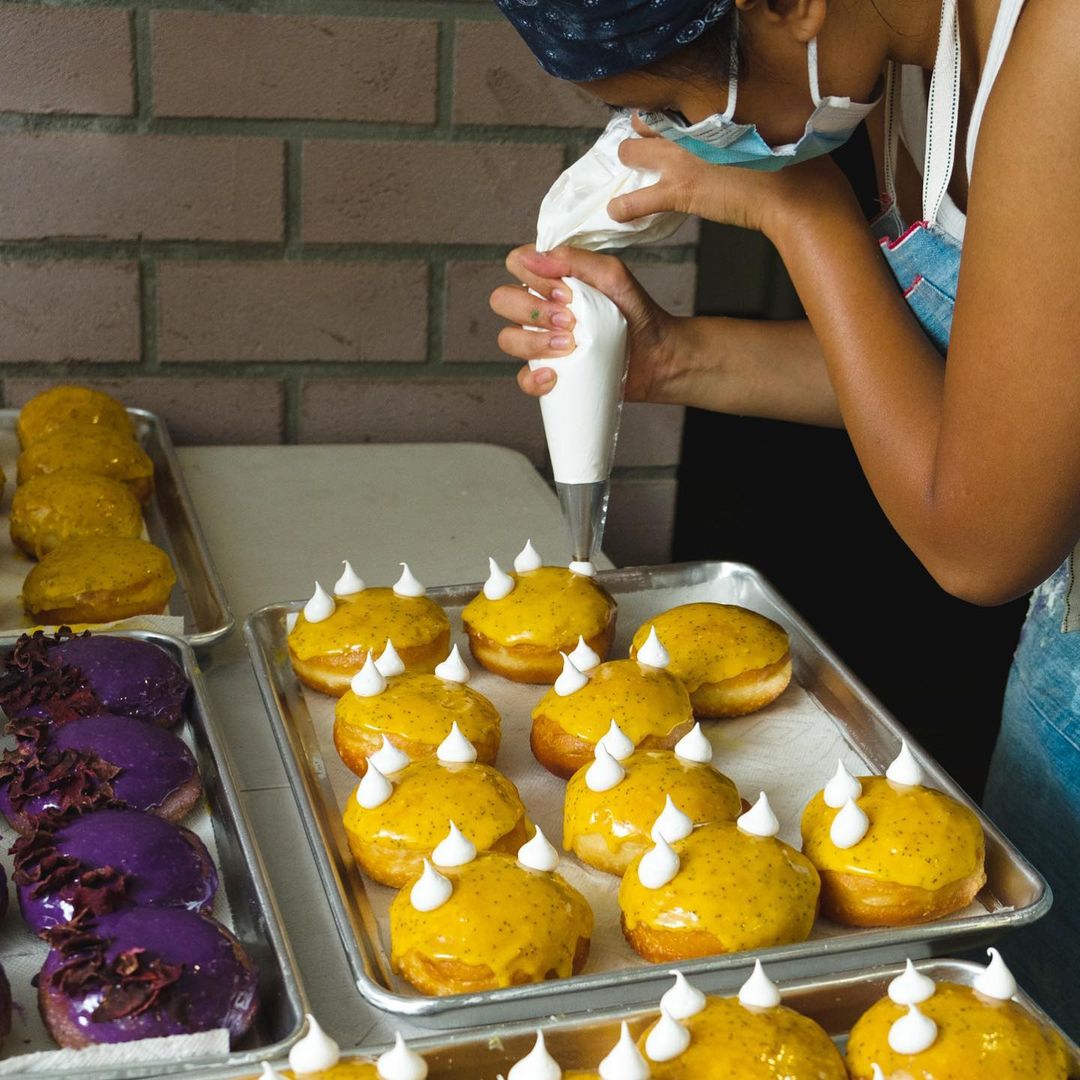
Like many of us, Camara took to baking and cooking while in lockdown. She baked an ube cake for a friend one day and realized she had leftover dough so she fried some of them and the first version of her ube doughnut was born.
“It tasted great and I thought, ‘I could try and sell this and see what happens’,” she shared.
She took a photo and posted it on her Instagram account and it took off from there.
Camara then came up with ideas, among them, using Filipino flavors from classic Filipino desserts that her mother’s mother Corazon used to make for them. Now, she makes all the doughnuts and its components from scratch and in small batches right from her own kitchen.
Here are the basics: each doughnut costs $6.50 and Camara only makes a limited amount.
Customers click a link every Monday at 3:00 p.m. to pre-order the doughnuts and if they’re not quick enough, they end up on a waiting list for canceled orders, if there are any.
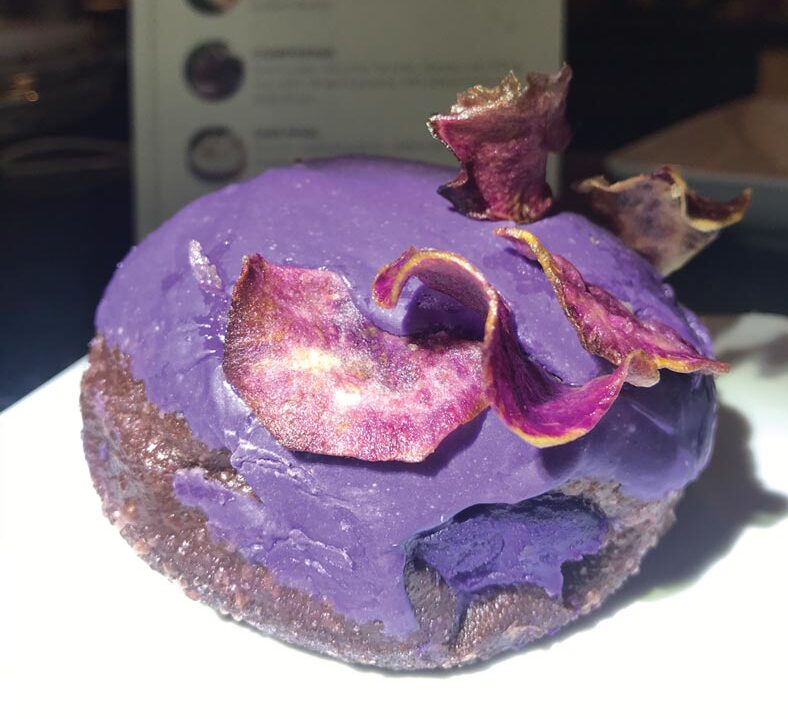
Every Friday, the doughnuts are made available for pick-up and delivery in Queens for the lucky ones who got through. This is lovingly referred to as the ‘doughnut drop.’
Among the flavors she introduced are traditional Filipino favorites: Leche Flan ni Lola (brioche doughnut stuffed with her grandma’s famous leche flan); Ube (ube brioche doughnut, fresh ube custard, ube glaze, purple yam crisps, ube powder); Halo-halo (brioche doughnut, classic halo-halo mix-ins, cream, ube glaze, flan, pinipig, banana chip, maraschino cherry); Buko Pandan (pandan brioche, coconut & sago cream, pandan glaze, flaked coconut, pinipig).
Kora has evolved from a “small side project to something that has developed into a full-time, passion-driven craft” and the popup was the cherry on the top for now.
I asked her about her dream for Kora.
“That’s an interesting question mainly because I never had this dream to begin with,” she quipped. “I never even thought Kora was gonna be anything when I first started.”
“It was something I did for myself, my grandma was definitely a big influence but as it grew, I hope that we can get a shop one day so we can be able to give people more doughnuts and expand our horizon,” she added. “I definitely want to get into more savory food as well, that’s something we’re looking into.”
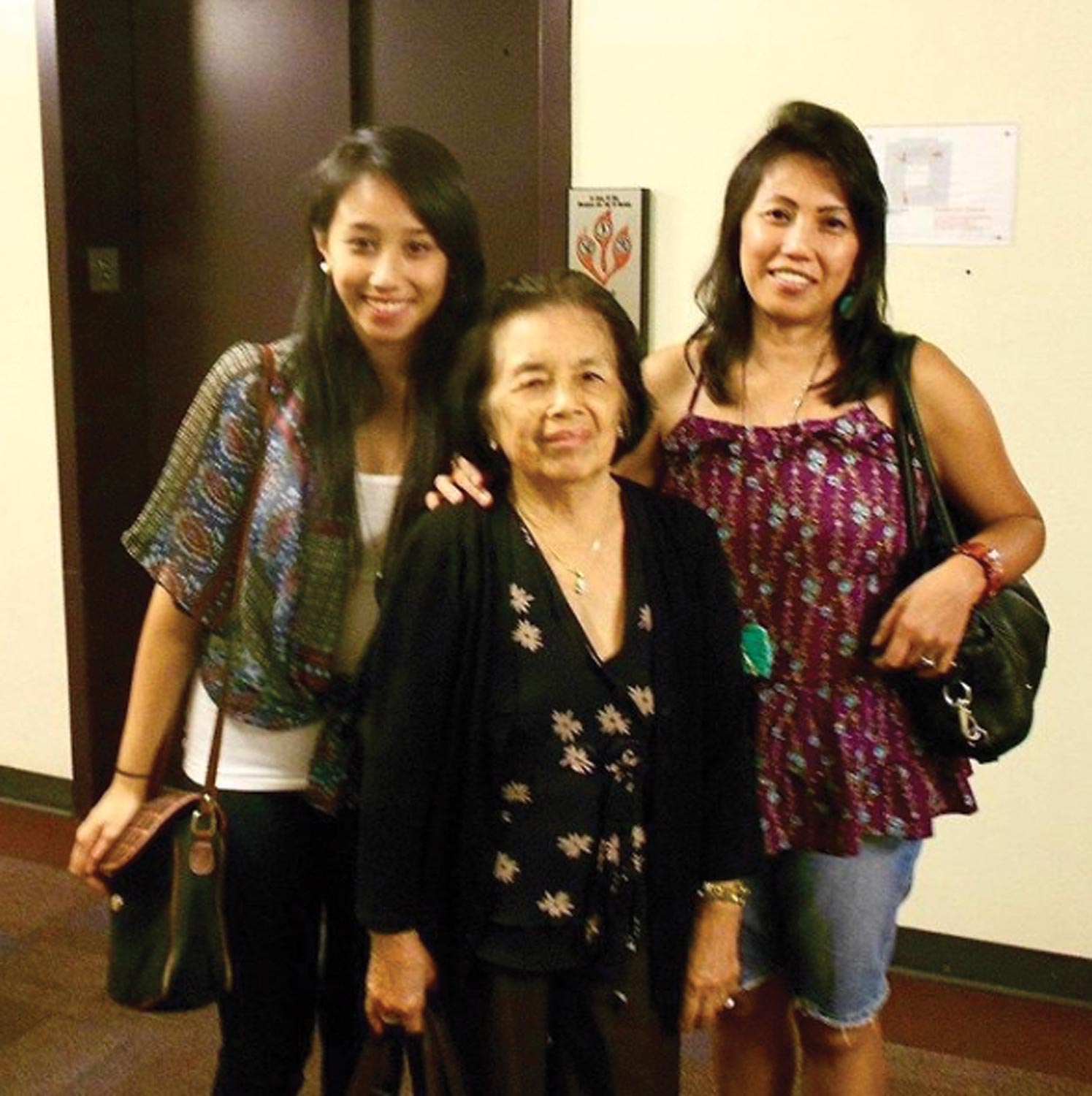
Just how big of an influence was her lola on the flavors she has created?
Well, let’s just say the flavors are a nod to the desserts Camara’s Lola Cora used to make, including the leche flan mentioned earlier.
Camara also makes her Sans Rival (brioche, roasted cashews, cashew dacquoise, Tanduay rum buttercream), which she explains is one of her Lola’s favorite Filipino desserts. She recalls her lola’s house in the town of Balayan, Batangas has a huge cashew tree in the backyard.
Among the five flavors included in the popup were Churron, a portmanteau of churros and turon (cruller, saba banana & jackfruit filling, caramelized spring roll wrapper, banana chips, toasted sugar, caramel drizzle) and Champorado (brown sugar & chocolate brioche, champorado filling, puffed rice tuile, whipped ganache, cocoa powder, cacao nib, DIY salted condensed milk drizzle).
“Growing up, when my grandma used to make champorado for us kids, though I loved having it at any time of day and any time of the year, it was one of the most comforting dishes in the wintertime,” Camara posted on her Instagram account. “Stepping inside after playing in the snow, nippy-nosed and hungry, nothing compared to a stewed, steaming hot bowl with all the sticky sweetened condensed milk a little girl could ask for. Leftovers were just as delicious the next day—can’t say I’m not guilty of scooping spoonfuls right out of the pot inside of the fridge…”
Other flavors that have made an appearance since she started the project are Itlog na Pula (salted egg yolk lava filling with cured yolk dust), Maja Blanca (coconut and corn pudding), and Calamansi Amapola (calamansi curd, poppy cream, calamansi glaze, torched meringue, graham crunch).
“We wanted to put halo-halo today, that’s one of my favorites, but that’s also one of the most labor-intensive. We wanted to make sure that we’d be able to make everything on time,” Camara said, responding to a question why the ubiquitous flavor was missing.
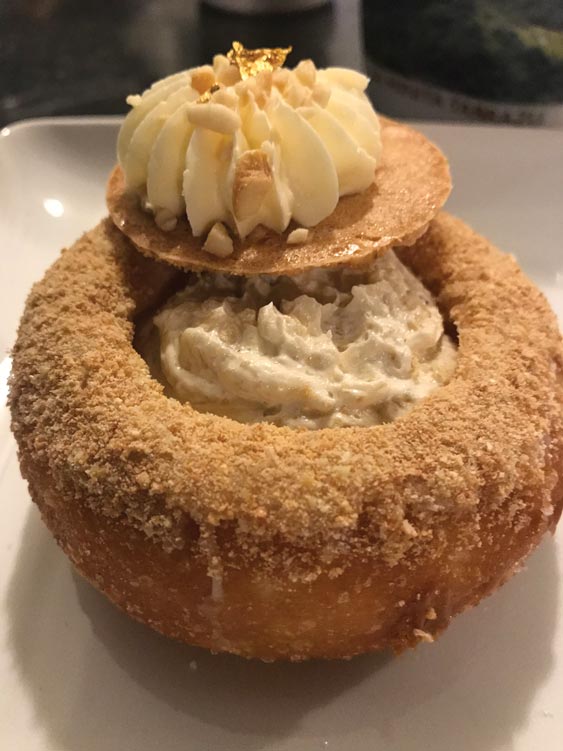
True to her earlier assessment, not everyone was able to get their hands on the tasty treats.
“For myself and all of us cultured in hospitality and have that as a strong foundation, we don’t like turning people away, we don’t like to say no. We also are only human and we can only do what we can do,” she said.
Camara shared that they were expecting more people would be open to sitting inside since partial indoor dining has been allowed in the city.
“This is a very big learning experience for us because this is the first time we’re doing this, we have a physical space where we can welcome people in,” she added. “I hope this doesn’t turn people away from us as a whole.”
Herstory
Camara studied at the Culinary Institute of America. After graduation, she said she bounced around different New York restaurants including Eleven Madison Park at the same time dabbling in catering as well. She was working at Union Square Hospitality Group when the lockdown happened last March.
Intricate Filipino doughnuts were not something Camara intended, but because of the look of the finished products, that is how her followers have been describing them.
She said she prepares the ingredients herself and makes every single component. She has a team that comes together on the day of the drop to build the doughnuts
For the popup, they prepared hundreds (she declined to reveal the actual number) to accommodate the demand.
Family

Camara’s family also came in droves to support her.
We met her father Tino Camara, who was excitedly taking photos of the long lines.
“They are the entire thing, every single person that’s on our team is either a family member or a very, very close friend of mine. We all each have our different skill sets that we apply to this business,” she said. “We’re selling doughnuts but it’s really about the experience that ties in with the doughnuts, we want to make sure that people are learning more about Filipino culture and they feel heard through our customer service.”
This means that they make sure everyone experiences the human connection for people who talk to them on their different platforms. They read and listen to the comments left on their social media accounts so they could improve further.
Camara has created an opportunity in the middle of a pandemic and helping friends and family is a big bonus, which is why she is thankful for the opportunity.
She believes that she is lucky to have this platform “to not only share my culinary spirit with all of you, but also all the stories these pastries carry with them.”
In the end, it’s all about passion and being true to one’s self.
“Don’t be afraid to be genuine, that’s what people respond to the most. When you’re being yourself and you can relate to other people in that way because you are being sincere, that’s what takes you places and that’s what people admire and love,” she said.






